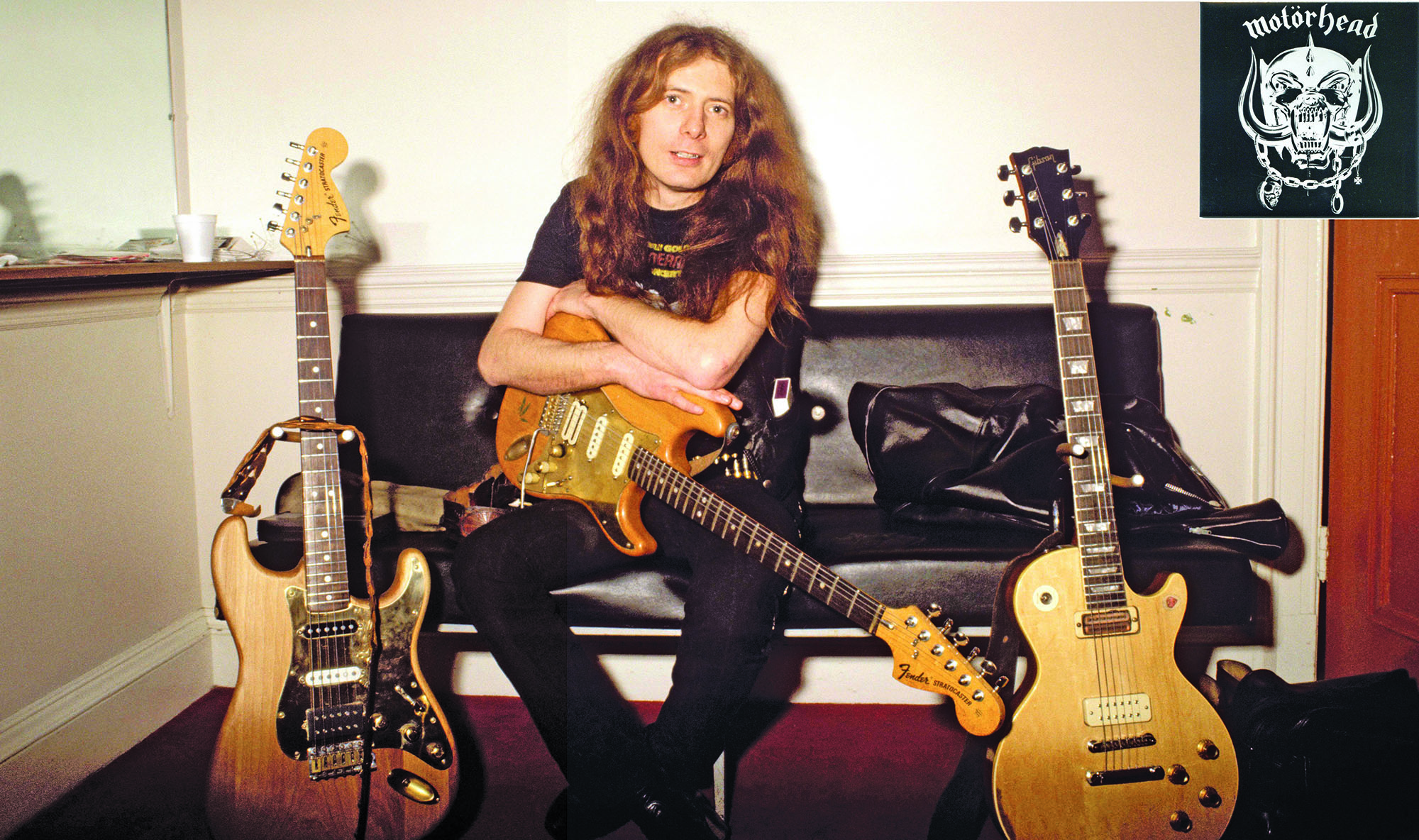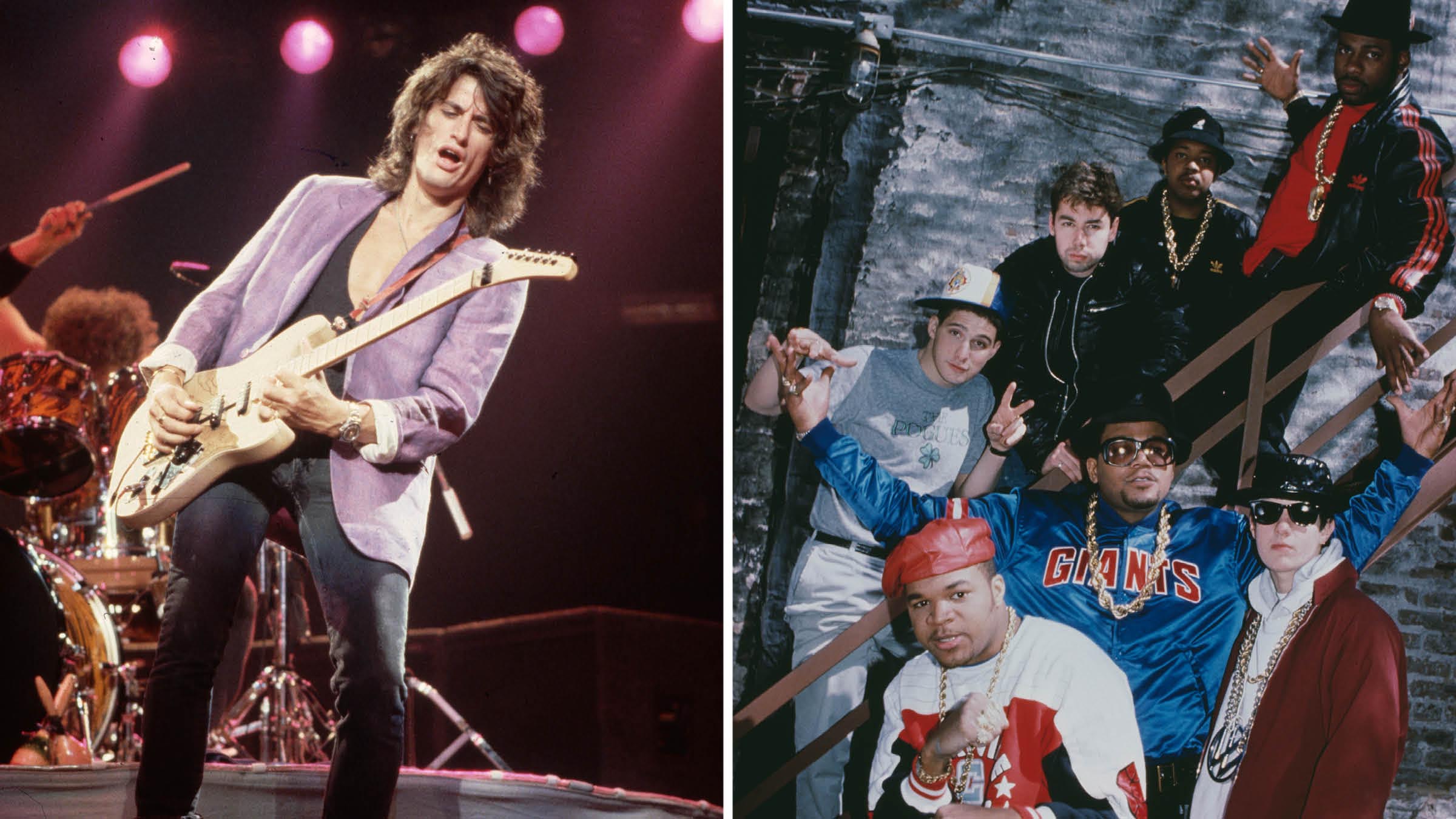Motörhead Guitarist "Fast" Eddie Clarke (1950-2018): A Tribute
All the latest guitar news, interviews, lessons, reviews, deals and more, direct to your inbox!
You are now subscribed
Your newsletter sign-up was successful

Motörhead’s Music will forever be most associated with frontman and founder Lemmy Kilmister’s distorted, rumbling bass and gravelly, tough-as-nails rasp, but it is guitarist “Fast” Eddie Clarke who provided the indelible riffs that characterized many of the British outfit’s greatest songs, from “Overkill” to “Bomber” to the immortal “Ace of Spades.” The guitarist, who played with Motörhead from 1976 to 1982, died on January 10, at age 67, while battling pneumonia.
Born Edward Allan Clarke on October 5, 1950, “Fast” Eddie was the last living member of Motörhead’s classic-era lineup, which also featured Kilmister and drummer Phil “Philthy Animal” Taylor, both of whom passed away in 2015. Together, they were arguably one of the most legendary and influential units in all of hard rock and heavy metal. Among the many bands who took more than a few musical cues from Motörhead was Metallica, who included four Motörhead covers on their 1998 compilation album, Garage Inc. Following Clarke’s death, drummer Lars Ulrich tweeted: “Thank you for the riffs. Thank you for the solos. Thank you for the attitude. Thank you for being in the coolest band. Thank you for inspiring me to go down the same path.”
Indeed, “Fast” Eddie’s riffs and solos, played primarily on his Seventies-era Fender Stratocaster, were an essential component of the Motörhead sound. In contrast to Lemmy and Taylor’s insistent, often noisy assault, Clarke’s playing was firmly rooted in styles as varied as rootsy Fifties-style rock (in a 2016 interview he pointed to Cliff Richard and the Shadows as his first introduction to music) and greasy, ZZ Top–esque riffing (see the honking double-stop lick that powers “No Class,” which owes more than a bit to Billy Gibbons and Co.’s “Tush”). There was also, of course, plenty of searing lead work—his nickname came about, Lemmy once bluntly explained, because “Eddie was a fast guitar player.”
Clarke grew up in and around London and was playing in bands by the time he was 15 years old. After cycling through acts with names like the Bitter End, Zeus and Continuous Performance, he spent a bit of time working as a renovator on a houseboat. It was there that he met Taylor, who had just begun playing with the nascent Motörhead. The drummer suggested he join the band as a second guitarist alongside then member Larry Wallis. Clarke accepted, and Wallis quit soon after, paving the way for the three-piece classic Motörhead lineup.
Together, Kilmister, Taylor and Clarke recorded and released five studio albums, beginning with their seminal 1977 self-titled debut, as well as the classic live record No Sleep ’Til Hammersmith, which hit Number One on the U.K. album charts in 1981. Following 1982’s Iron Fist, Clarke exited Motörhead amidst tensions between him and his bandmates; the final straw came when he balked at their cover of Tammy Wynette’s “Stand By Your Man,” which also featured Plasmatics singer Wendy O. Williams. Kilmister maintained that the guitarist quit the group, though, as Clarke stated in a 2014 interview, “I do not call it leaving, as it was not my choice.”
Regardless, Clarke reemerged shortly after his departure from Motörhead with ex-UFO bassist Pete Way in Fastway, a more straightforward, heavy blues-rock-oriented band. Though Way exited the project almost immediately, Clarke shepherded the group to modest success with the 1983 singles “Easy Livin’” and the boogie-rocking “Say What You Will.” In 1994 Clarke released a solo album, It Ain’t Over Till It’s Over, which featured a reunion with Lemmy, and in the ensuing years he continued to record and tour, reuniting with Fastway and also joining Motörhead onstage for their 25th anniversary concert at London’s Brixton Academy in 2000, and then again in 2007 at the Sweden Rock Festival.
There, at Sweden Rock, he joined Lemmy and then Motörhead members Phil Campbell and Mickey Dee for a blazing set-closing run-through of three of the greatest songs from one of rock’s greatest bands—“Bomber,” “Ace of Spades” and “Overkill.” As Clarke mused, quite rightly, in a 2016 interview, “We had a great writing thing, me and Lem. We really did write some great tunes.”
All the latest guitar news, interviews, lessons, reviews, deals and more, direct to your inbox!
Rich is the co-author of the best-selling Nöthin' But a Good Time: The Uncensored History of the '80s Hard Rock Explosion. He is also a recording and performing musician, and a former editor of Guitar World magazine and executive editor of Guitar Aficionado magazine. He has authored several additional books, among them Kurt Cobain: Montage of Heck, the companion to the documentary of the same name.

